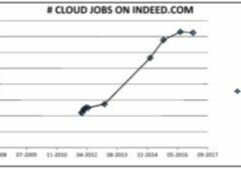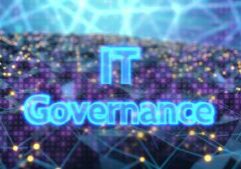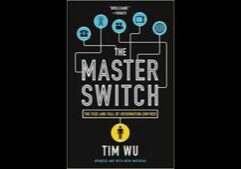This topic came up because of two recent headlines and one new book. The first was the news that the now former Equifax CISO was a music major, without formal college level tech or security training. The second was the recent article in the WSJ highlighting Bank of America’s new Chief Operations and Technology Officer, Cathy Bessant. Ms. Bessant’s outstanding background includes general management and marketing, but not specifically technology leadership. The book I mentioned is Mark Schwartz’s Seat at the Table (2017). Mr. Schwartz argues that, today, tech leaders need a hard core of tech knowledge and can’t be just managers putting on a propeller hat. He bases this conclusion on the rapid and deep penetration of technology into all business operations and the continued rapid change in that technology. In many cases, business leaders will take the initiative to adopt new technology. In this situation, everyone in the organization is tech savvy; but it is the tech leaders that must maintain a deep understanding and ability to evaluate risks.
Who is right? Are these two Fortune 500 firms behind the times? In this post, I am going to look at some published opinions from four other tech leadership gurus and then my own thoughts.
How about Charlie Araujo’s book, The Quantum Age of IT (2012)? He defines the five skills needed by new IT leaders. These are: (1) IT financial management; (2) critical thinking and analytical skills; (3) communication and marketing; (4) innovation and collaboration; (5) leadership. I think this list is great, but it does not specifically mention deep technical skills.
My next guru is Peter High, in his book Implementing World Class IT Strategy (2014). This book contains many nuggets for implementing change. Scanning through it again, I see that Mr. High advises the CIO to be a tech trend spotter; further that IT leaders should serve as tech consultants and facilitators to the business. These functions will require deep tech skills in those IT leaders.
Next, let’s look at The CIO Paradox (2013), from Martha Heller. I reread the last chapter “The Future of the CIO Role” to look at the conclusions. Comments here include: “every company is a technology company”; “CIOs flexing their technology muscles again”; “one version of the future is the technical CIO”. So, in my view, Ms. Heller also highlights a deep tech role for IT leaders.
My fourth guru is Al Guibord, whose book IT Leadership Manual (2012) provides insight on dealing with IT leadership challenges. This book has a wealth of ideas on developing effective relationships in business; but, does not address the need for leaders to maintain deep technology expertise.
So, adding up the score, three gurus support deeper tech knowledge for IT leaders, and two focus on soft skills. Today, trends in agile/devops and cloud are giving more power and knowledge to business leaders. Jeffrey Immelt, recently departed GE CEO, stated that all new hires will learn to code. Tech leaders are going to need even deeper knowledge…along with all the soft skills. So, yes, I believe the CIO and other IT leaders should learn to code.
Book an Appointment for Cybersecurity Issues
Request an appointment with Dr. Fred Scholl. We will discuss any cybersecurity issues you have.



























































